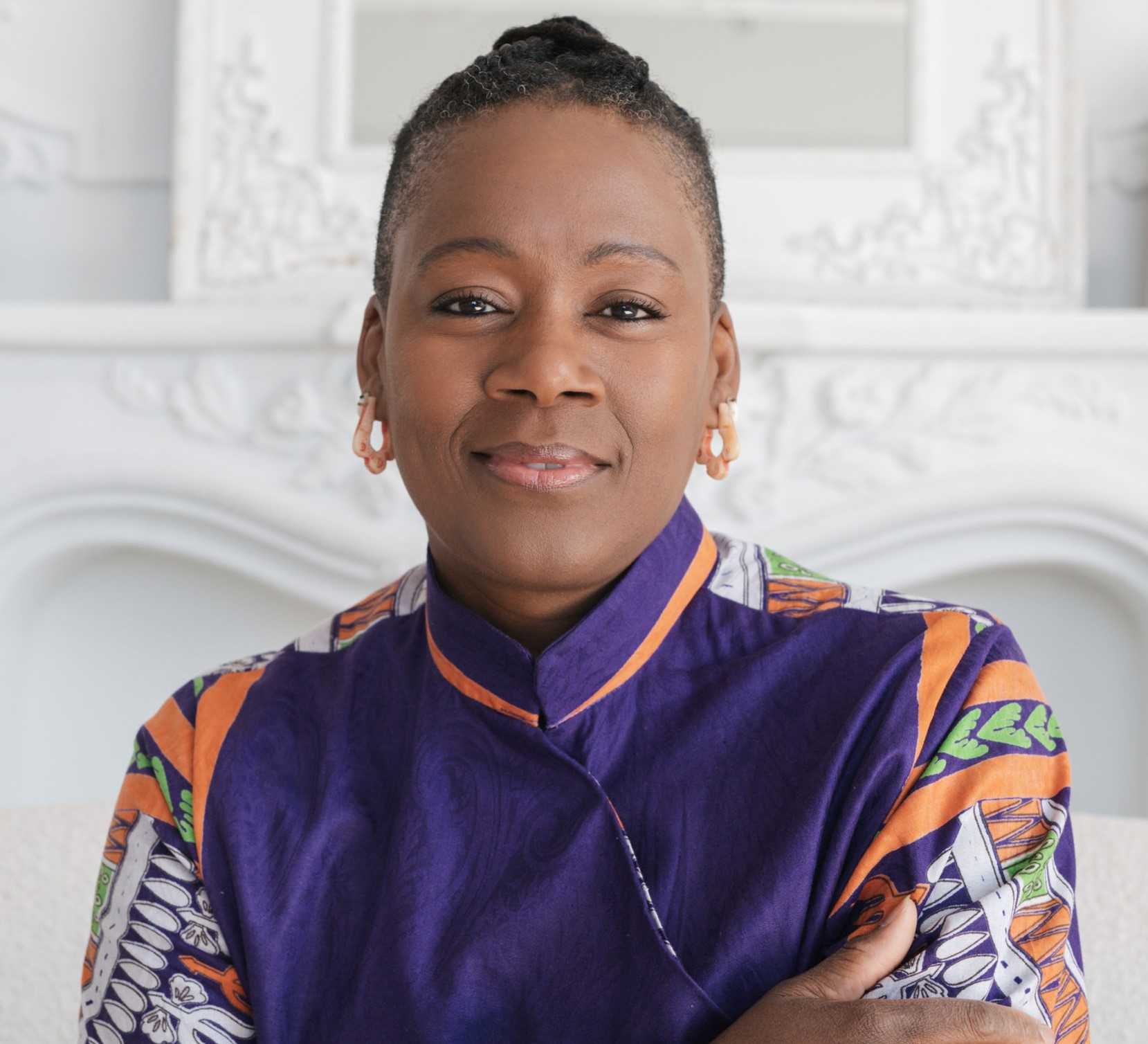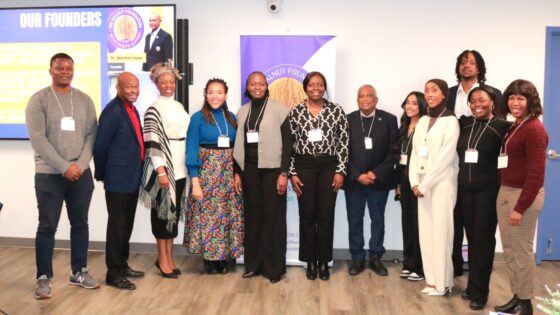on
BY SIMONE J. SMITH
“Whenever you can, promote yourself unapologetically. The best investment you can make is in yourself.”
Sophia ‘SoJay’ Jackson is the driving force behind Soulful Colour Corp, a series of affirmation colouring books that were created to engage individuals in a meditative and creative activity that helps reduce: stress, anxiety, and depression. It enables individuals to process emotions and experiences in a safe and soothing manner; a type of therapy. Art Therapy.
Initially, she wanted to have something cool to colour and she was sure there were other people who would like that too. She looked at other colouring books, and there was a void, a big gaping hole, and she saw an opportunity. So, what did she do next? She filled it with something awesome! Her current therapeutic creations include:
- Soulful Colour An Affirmation Colouring Book for Your Inner Child
- Soulful Colour Mindset•Money•Matters An Affirmation Colouring Book for Your Inner Child
- Empower Flow | Affirmation Colouring for Menstrual Awareness
- Zeek & Zara | Affirmation Colouring Book in English and French
I met Sophia at an event last month, and upon meeting her, I saw how she exuded a calm demeanor, her presence soothing like a gentle breeze. Yet, beneath that tranquility lies a powerful spirit. Unyielding and resolute. Her beautiful soul shines through in every interaction, radiating warmth and kindness. Her voice, as captivating as it is melodious, resonates with the depth of her inner beauty. A creative spirit, she has tapped into a wellspring of imagination, transforming her visions into reality with effortless grace. Her artistry, whether in words, music, or visuals, speaks volumes of her ingenuity and the boundless nature of her creative mind. We had some time to chat, and she shared with me her journey into entrepreneurism.
“I spent my first few years of life in foster care, going back and forth between my birth mom, my dad, and my primary caregiver, who ended up adopting me and marrying my father. Watching my mom hustle, working two jobs, dealing with divorce, and my desire to make it as a: singer-songwriter-performer in the arts were driving factors. Knowing how to further your career and aligning yourself with the right people was always challenging, as were navigating people’s: personalities, characters, honesty, and integrity.”
“I was a happy child for the most part. According to my mom, I was singing and dancing before I could talk. It was recognized at an early age that I would be a singer, or dancer. In elementary school, I was involved in sports, track-and-field, singing, and performing. I was part of the main choir, specialty choirs like the triple trio, and led in plays. I auditioned and got into a school of the arts for my first year of high school.”
She never thought of herself as a leader, but looking back with perspective, she realizes that she did have leadership qualities. “I was the friend looked up to for my unique sense of style, singing ability, humour, risk-taking, and desire to have fun. I don’t remember aspiring to be a singer or performer in my elementary years, it was just something I did, like track and field.”
She attended a school for performing arts in high school, moved to Toronto from Ottawa sang, wrote songs, and performed at different venues in the city like: Honey Jam, Harlem West, Harlem Underground, Train Studios, and Poetry Cafe. “I had a band and also got into acting, voice-over work, background work, and auditioned for projects like: The Lion King, Cirque du Soleil, and Treehouse TV, all while working full-time in the corporate world.”
During the corporate part of her journey, she was a trainer at Nortel Networks. Later, in a call center environment, she trained new hires and ran presentations introducing them to the sales incentive program. She became interested in being a life coach and investigated what it would take to become one. After spending some time in Miami, she returned to Toronto and witnessed a friend of hers (a workshop facilitator in schools) delivering programming to empower, enrich, build self-esteem, and help young people deal with trauma. She was also a singer and performer, and Sophia started working with her. She soon after became a mentor, which prompted her to go back to school as a mature student in 2013 to get her credentials as a child and youth care worker.
“During this time, my challenge was managing the extremely high expectations and pressure I put on myself to be the best child and youth care worker (CYC), as well as dealing with systems and people upholding the status quo. Despite my challenges, I was witness to the most incredible sight; seeing the light bulbs go off in their heads when they learned something new. Their laughter. Their ability to absorb things quickly.”
“I had a chance to work with a grassroots community arts program called Sketch, and a youth custody justice treatment and detention center called Syl Apps. These positive experiences laid the foundation for my work at Peel District School Board as an education assistant.”
I learned that it was Sophia’s pursuit of being a: singer, songwriter, and performer that really prepared her for being an entrepreneur. She was already entrepreneur-ing before she realized it. Managing her career as an: actor, voice-over artist, and band leader. Managing gigs. Booking gigs. Paying band members. These were all entrepreneurial activities. Transitioning to entrepreneurship was a natural shift of focus. “Completing my album was akin to finishing my affirmation coloring books. Becoming a child and youth worker and completing that program, along with the skills I gained, complemented my performance background and corporate life experience.”
“Many people have a narrow idea of what creativity it. It is our humanity that makes us human. My creativity is expressed through music, songwriting, and networking. I show up.”
Most people automatically think that colouring is mainly for kids. Colouring is for all ages and for everyone, as long as you are willing to try it. Sophia reminded me that colouring is a tool for emotional self-regulation. There are so many applications, but educators are rarely intentional with the images given to children to colour. Sophia shared that her colouring books provide an opportunity to: eliminate biases, to support diversity in classrooms and other environments, and to promote self-confidence and self-love.
“This is so important in our elementary years. As adults, it’s a self-care practice, it is art therapy, and we know that art therapy in general is very calming, meditative and therapeutic. Add the diversity piece to that, as well as: the affirmations, the quotes and inspirational messages that’s now connecting left brain, right brain, which is still relevant for young kids, but of course, for adults very relevant. There’s a deeper cognitive experience.”
Another big challenge for Sophia was deciding to leave the school board after almost seven years to focus on building Soulful Colour full-time. I asked her to share what she had learned, and to encourage young entrepreneurs and creatives who might be afraid to take that next step.
“Don’t let self-doubt stop you from doing what you want. Time will pass anyway, so let it pass while you’re taking steps toward the life you want. Listen to your instincts and act on them. Find your tribe—people who align with your values and integrity and work with them. Don’t be afraid to take risks; the worst that can happen is you learn from experience. Tap into your creativity and infuse it into everything you do. This will be your competitive edge. Don’t hold back your gifts; share them at every opportunity.”
Stay in the loop with exclusive news, stories, and insights—delivered straight to your inbox. No fluff, just real content that matters. Sign up today!













